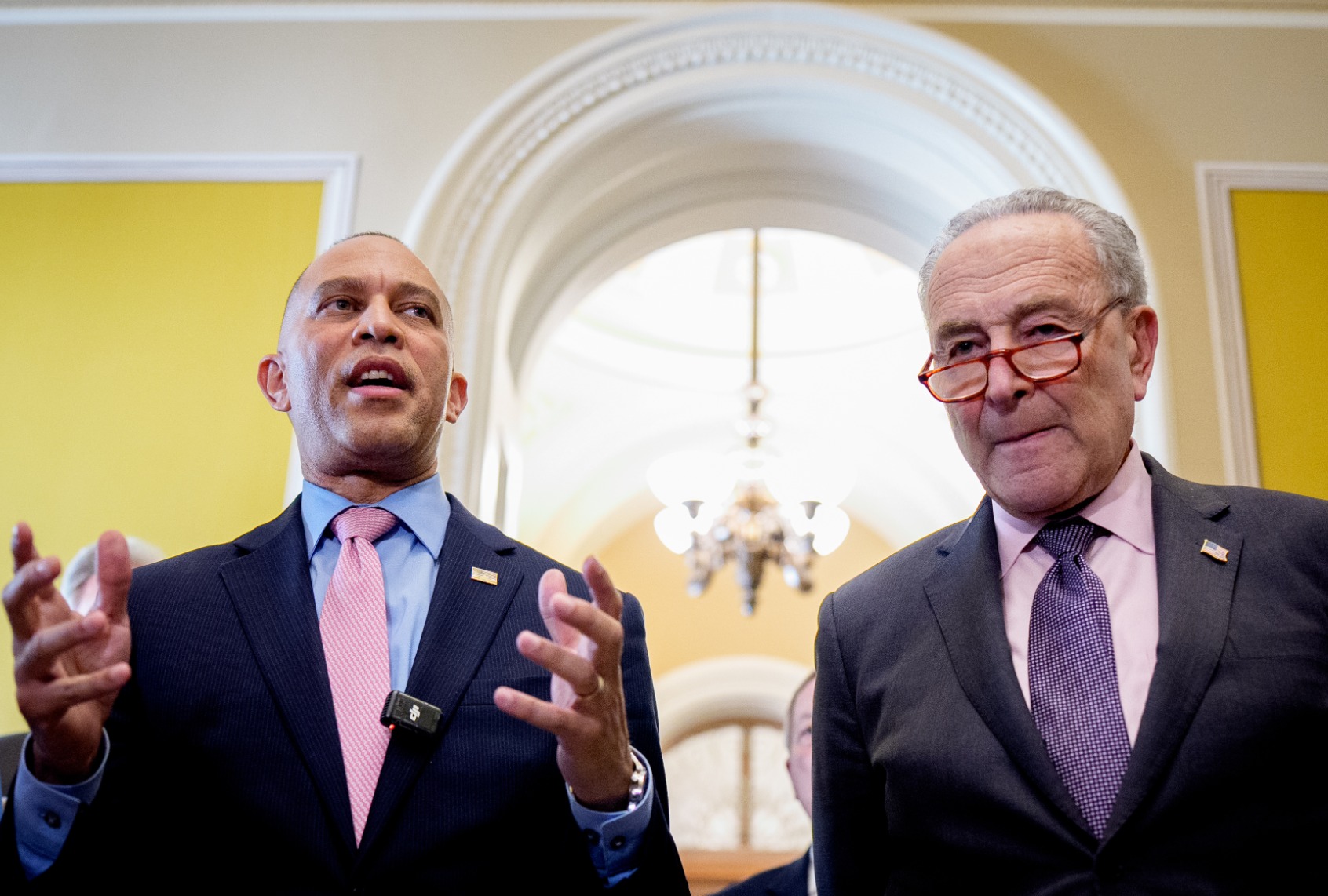As a potential government shutdown approaches, Congressional Democrats are displaying unexpected unity in their negotiations with Republican leaders. The situation highlights a stark contrast to previous budget battles, particularly during the Obama administration when former President Donald Trump called for direct action from the White House to avert shutdowns.
This week, Trump declined to meet with Democratic leaders despite initially agreeing to do so, citing unsubstantiated demands from Democrats in a lengthy post on his social media platform. His refusal appears to have been influenced by requests from GOP congressional leadership who preferred to avoid an unpredictable encounter.
House Minority Leader Hakeem Jeffries and Senate Minority Leader Chuck Schumer issued a statement emphasizing their commitment to preventing a shutdown while addressing what they termed the “Republican healthcare crisis.” They warned that “time is running out” as the clock ticks down to critical funding deadlines.
Divided GOP Faces Cohesive Democratic Front
Republicans are currently experiencing a rift in strategy as they confront a determined Democratic opposition. Traditionally, the GOP has relied on tactics that leverage the threat of a government shutdown, but the current political landscape has shifted. Some Republicans, led by Senate Majority Leader John Thune, are advocating for a straightforward approach, arguing that Democrats are obstructing a clean continuing resolution to fund the government for an additional seven weeks.
Conversely, House Speaker Mike Johnson is promoting a more combative narrative, claiming Democrats aim to expand benefits for undocumented immigrants. The disarray within the GOP presents a challenge as they attempt to coordinate their messaging while Democrats remain resolute and united.
The administration’s approach under the Office of Management and Budget Director Russell Vought has further complicated bipartisan efforts. Vought has openly criticized the notion of bipartisanship, suggesting that a more partisan appropriations process could eventually lead to greater cooperation. His recent comments, coupled with the controversial use of “pocket rescissions” to retract spending already approved by Congress, have stirred significant backlash.
Democrats Prepare for Midterm Struggles
As the September 24 deadline approaches, Democrats are increasingly aware of the stakes involved. They are advocating for the restoration of healthcare cuts outlined in the One Big Beautiful Bill Act, which threatens to impact millions, including many Republican voters. With the midterm elections on the horizon, the pressure is mounting on both parties.
The ongoing negotiations are not merely political maneuvering; they have real implications for constituents across the nation. The prospect of mass federal employee layoffs, as threatened by the administration, has lost its sting. Reports indicate that many employees previously laid off are being asked to return, undermining the administration’s credibility.
Democrats appear to have recognized that the current Republican strategy relies heavily on threats and misinformation. They are determined to confront this head-on, advocating for those adversely affected by budget cuts, particularly in healthcare. The urgency of their message resonates with a public increasingly frustrated by political gamesmanship.
While the road ahead remains uncertain, Democrats are standing their ground, aware that they represent the interests of the millions of Americans who did not support the current administration. As the countdown to the budget deadline continues, the focus will remain on whether the parties can find common ground or if the government will face another shutdown.
